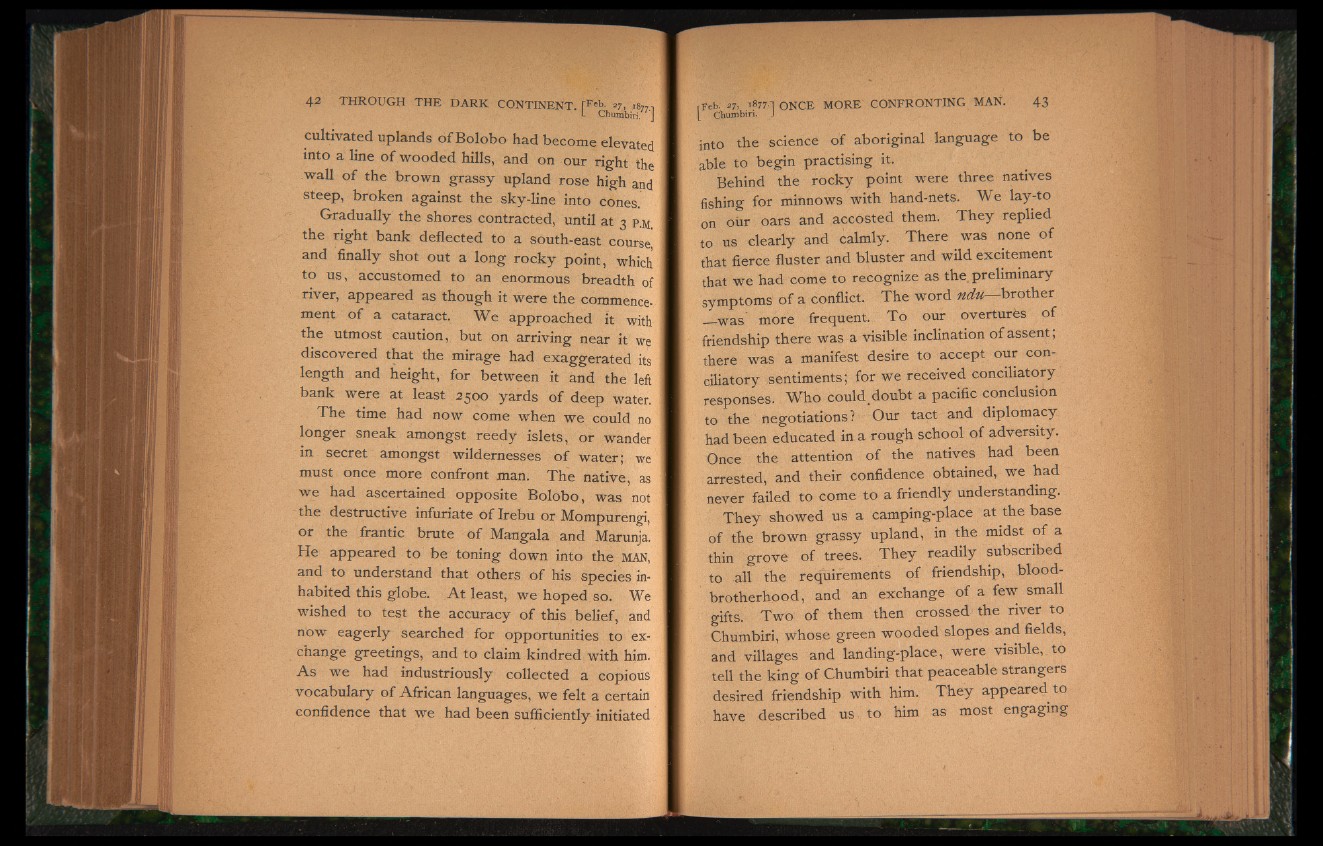
cultivated uplands o f Bolobo had become elevated
into a line o f w ooded hills, and on our right the
wall o f the brown grassy upland rose high and
steep, broken against the sky-line into cones.
Gradually the shores contracted, until at 3 p.m
the right bank deflected to a south-east course!
and finally shot out a long rocky point, which
to us, accustomed to an enormous breadth of
river, appeared as though it were the commencement
of a cataract. We approached it with
the utmost caution, but on arriving near it we
discovered that the mirage had exaggerated its
length and height, for between it and the left
bank were at least 2500 yards of deep water.
The time had now come when we could no
longer sneak amongst reedy islets, or wander
in secret amongst wildernesses of water; we
must once more confront man. The native, as
we had ascertained opposite Bolobo, was not
the destructive infuriate of Irebu or Mompurengi,
or the frantic brute of Mangala and Marunja.
He appeared to be toning down into the MAN,
and to understand that others of his species inhabited
this globe. At least, we hoped so. We
wished to test the accuracy of this belief, and
now eagerly searched for opportunities to exchange
greetings, and to claim kindred with him.
As we had industriously collected a copious
vocabulary of African languages, we felt a certain
confidence that we had been sufficiently initiated
rFeb. 27. l8 77-l ONCE MORE CONFRONTING MAN. 43
[ Chumbiri. J
into the science of aboriginal language to be
able to begin practising it.
Behind the rocky point were three natives
fishing for minnows with hand-nets. We lay-to
on our oars and accosted them. They replied
to us clearly and calmly. There was none of
that fierce fluster and bluster and wild excitement
that we had come to recognize as the, preliminary
symptoms of a conflict. The word ndu brother
Was' more frequent. To our overtures of
friendship there was a visible inclination of assent,
there was a manifest desire to accept our conciliatory
sentiments; for we received conciliatory
responses. Who could.doubt a pacific conclusion
to the negotiations ?■■■ Our tact and diplomacy
had been educated in a rough school of adversity.
Once the attention of the natives had been
arrested, and their confidence obtained, we had
never failed to come to a friendly understanding.
They showed us a camping-place at the base
of the brown grassy upland, in the midst of a
tffin grove of trees. They readily subscribed
to all the requirements of friendship, blood-
brotherhood, and an exchange of a few small
gifts. Two of them then crossed the river to
Chumbiri, whose green wooded slopes and fields,
and villages and landing-place, were visible, to
tell the king of Chumbiri that peaceable strangers
desired friendship with him. They appeared to
have described us to him as most engaging